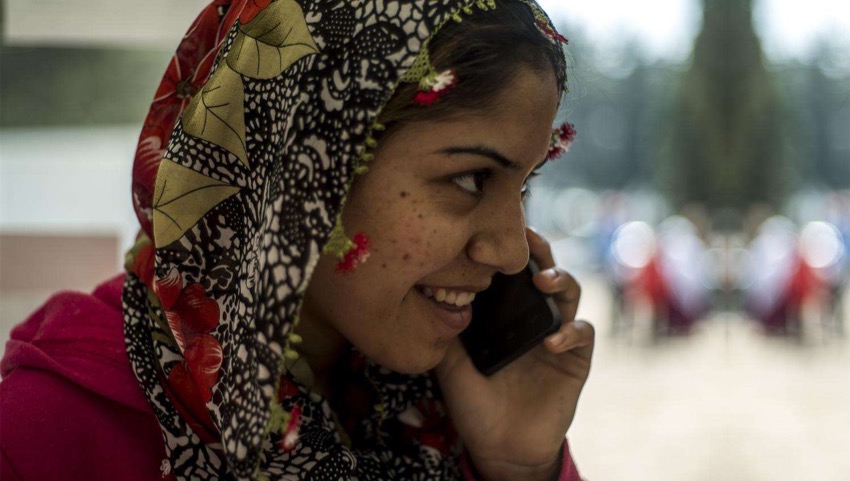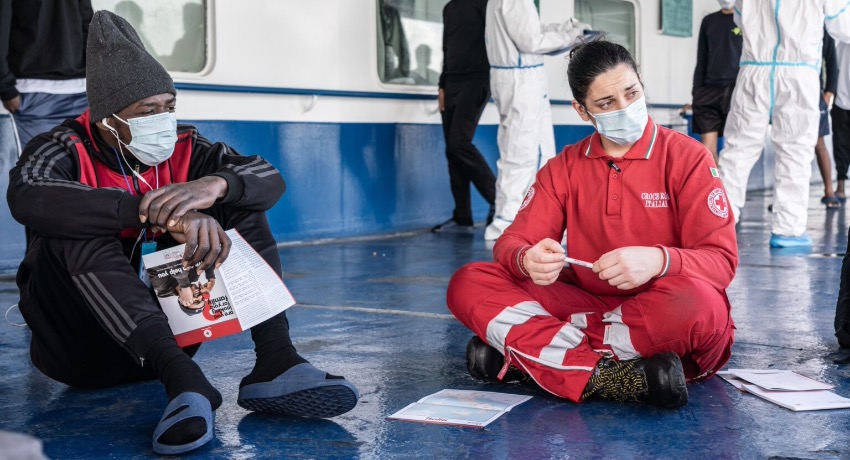Family unity cannot be compromised
Drawing lessons from family reunification in times of COVID-19
Brussels, 18 June 2021 – Ahead of World Refugee Day, the Red Cross EU Office calls on the EU and Member States to draw lessons from the COVID-19 pandemic and to ensure that family reunification requests are not further compromised by border closures or other containment measures. In times when European governments are progressively easing COVID-19 related restrictions, concrete solutions to facilitate family reunification are essential, including for beneficiaries of international protection. Procedures should be facilitated and any administrative and legal obstacles that are keeping refugee families apart should be removed.
Since the start of the COVID-19 crisis, travel restrictions and other public health actions have led many more people to live with the uncertainty of when they will be able to see their loved ones again. For beneficiaries of international protection in Europe, obstacles to reunite with family members have long existed. Sadly, COVID-19 has brought even further impediments to their right to family life.
In addition to restrictive interpretations of existing rules by Member States, practical hurdles have always meant that family reunification in the EU is a lengthy and unsafe process. Protection seekers and their family members are particularly exposed, as they often have to travel along risky routes to reach the place where their application can be processed. Traditionally, key obstacles have included the limited entitlements of people with subsidiary and other temporary forms of protection, as well as the definition of who can be considered a family member. However, the pandemic has further exacerbated enduring administrative and practical hurdles.

Travel bans have been imposed without exceptions for people travelling for family reunification. Despite visas being issued, they have often expired or been suspended whilst families were unable to enter their destination country. Even when family members have been allowed to travel, they have often faced additional difficulties related to their travel arrangements. In some cases, embassy closures have made it impossible to launch applications, have claims examined, or receive timely information about the progress of a case. Now, with embassies gradually reopening, continued delays are common due to the backlog accumulated during the pandemic – adding to already lengthy examination times. With numbers of permits delivered for family reasons having reached an unprecedented low, the extended separation of family members is sure to negatively affect social inclusion prospects.
Scaling up consular capacities and cooperation is critical to improving access to family reunification and facilitating the swift processing of claims. Increasing the availability of legal counsel, information, and travel support to enable fairer and more efficient family reunification procedures should also be a key priority.

This health crisis has also been an opportunity for the EU and Member States to adjust procedures and implement creative responses. For example, digital means have been used to allow the remote processing of visa applications. Similarly, visas that had expired due to travel restrictions have been extended. These types of innovations and more flexible approaches should be further promoted, including online interviews of applicants.
Throughout the pandemic, European Red Cross Societies have stepped up their work to prevent family separation and protect family unity. Because of social distancing measures, they have multiplied phone and video-conference calls wherever possible, to provide much needed information, legal counseling, and other services. They have also been engaged in close dialogue with their governments to try and address the obstacles encountered by protection seekers and their families. Through these activities, they have observed how COVID-19 has shed light on the pressing need to improve the family reunification process overall.
An enhanced understanding of the needs of the people affected, including in the context of the pandemic, will be instrumental to addressing existing gaps and applying a protection-oriented approach. While efforts to develop legal avenues to access protection in the EU are very welcome, promoting family reunification as a complementary pathway should be contingent upon compliance with the existing family reunification framework. EU Member States must capitalise on any flexible, alternative solutions successfully used during the pandemic. They should urgently lift existing obstacles and do more to streamline and shorten family reunification procedures.
For media inquiries, please contact Eva Oyón on: eva.oyon@redcross.eu or +32 2 235 09 22

